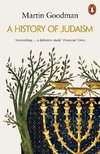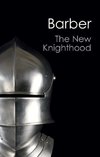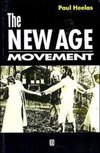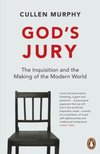
-
 Anglický jazyk
Anglický jazyk
Battles involving Switzerland
Autor: Source: Wikipedia
Source: Wikipedia. Pages: 24. Chapters: Battles of the Burgundian Wars, Battle of Marignano, Battle of Calven, Freiämtersturm, Battle of Laupen, Battle of Morat, First Battle of Zurich, Appenzell Wars, Battle of Grandson, Battle of Nancy, Second War of Kappel,... Viac o knihe
Na objednávku
13.59 €
bežná cena: 15.10 €
O knihe
Source: Wikipedia. Pages: 24. Chapters: Battles of the Burgundian Wars, Battle of Marignano, Battle of Calven, Freiämtersturm, Battle of Laupen, Battle of Morat, First Battle of Zurich, Appenzell Wars, Battle of Grandson, Battle of Nancy, Second War of Kappel, Battle of Sempach, Siege of Neuss, Battle of Novara, Battle of Schwaderloh, Battle of Näfels, Battle of Frastanz, Battle of Morgarten, Second Battle of Zurich, Battle of Hard, Battles of Villmergen, Battle of St. Jakob an der Birs, Battle of Sörenberg, Battle of St. Jakob an der Sihl, Battle of Crevola, Battle of Bruderholz, Battle of Giornico, Battle of Héricourt, Battle on the Planta. Excerpt: The Battle of Marignano was fought during the phase of the Italian Wars (1494-1559) called the War of the League of Cambrai, and took place on September 13 and 15, 1515, near the town today called Melegnano, 16 km southeast of Milan. It resulted in a victory for French forces. It was one of the most savage and (for the Swiss) decisive battles of the age. It pitted the French army, composed of the best armored lancers and artillery in Europe and led by Francis I, newly crowned king of France and a day past his 21st birthday, against the heretofore invincible Swiss Mercenaries of the Old Swiss Confederacy, considered the best infantry in the world. With Francis were some German landsknechts, bitter rivals of the Swiss for fame and renown in war, and arriving late his Venetian allies. The campaign of Marignano followed years of Swiss successes, during which French fortunes in Northern Italy had suffered greatly. The Swiss had taken control of Milan (for France the gateway to Italy) after their victory at the Battle of Novara (1513), and returned to its ducal throne Massimiliano - son of Lodovico il Moro, the last duke of the House of Sforza to rule independent Milan, as their puppet. The prologue to the battle was a remarkable Alpine passage, in which Francis hauled pieces of artillery (including 40 or 70 huge cannons) over new-made roads over the Col d'Argentière, a previously unknown route. This was, at the time, considered one of the foremost military exploits of the age and the equal of Hannibal's crossing of the Alps. At Villafranca the French, led by Jacques de la Palice, surprised and captured the Papal commander, Prospero Colonna, in a daring cavalry raid deep behind the allied lines (the Chevalier Bayard providing the impetus and expertise). Colonna and his staff aside, the French seized a great deal of booty on the raid, including 600 horses. The capture of Colonna, along with the startling appearance of the French army on the plains of Piedmont, stunned the
- Vydavateľstvo: Books LLC, Reference Series
- Rok vydania: 2015
- Formát: Paperback
- Rozmer: 246 x 189 mm
- Jazyk: Anglický jazyk
- ISBN: 9781156008232












